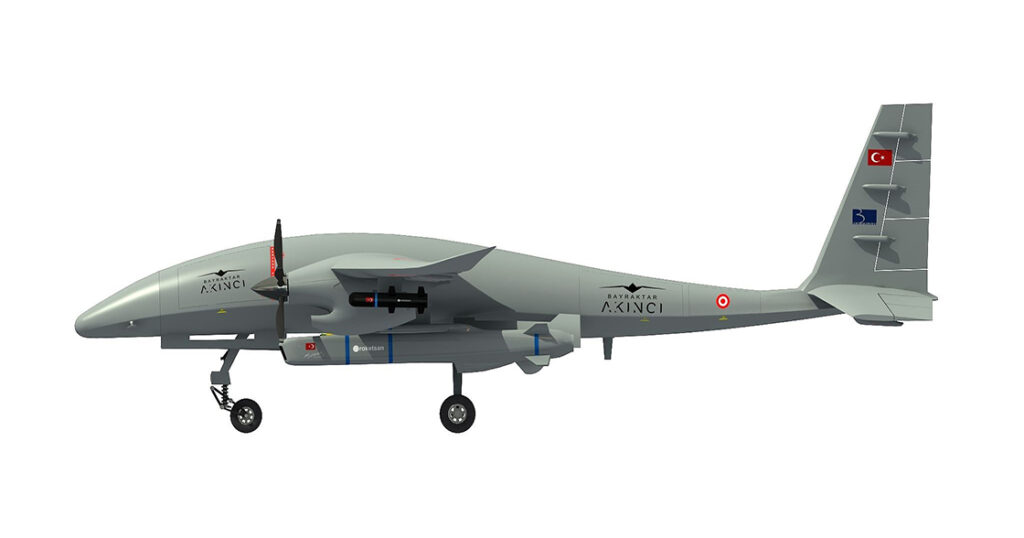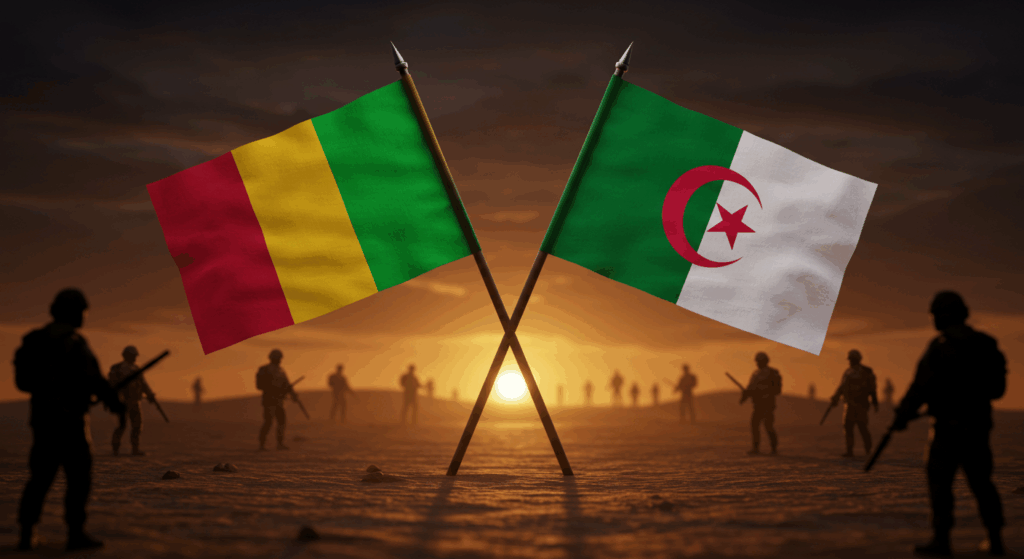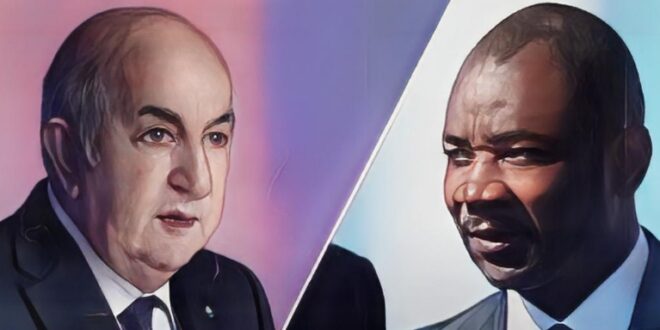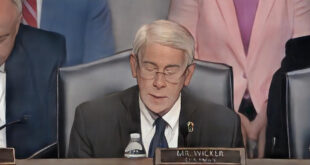A Continent at a Crossroads
When will African countries learn to live in peace, support one another’s growth, and offer solutions instead of aggression?
This question has echoed through the halls of Pan-Africanist movements for decades. Yet, conflicts between neighboring nations continue to threaten the continent’s unity. The latest flashpoint? A drone dispute between Mali and Algeria that risks snowballing into a regional crisis.
THE $30 MILLION QUESTION: WHY SHOOT DOWN THE DRONE?
 On the night of March 31st, 2025, a Turkish-manufactured Akinci surveillance drone operated by the Malian military was on a mission in Mali’s far northeast. Its target: terrorist groups threatening national security. However, before the mission could be completed, the drone was shot down, crashing in Tinzawaten, close to the Algeria-Mali border.
On the night of March 31st, 2025, a Turkish-manufactured Akinci surveillance drone operated by the Malian military was on a mission in Mali’s far northeast. Its target: terrorist groups threatening national security. However, before the mission could be completed, the drone was shot down, crashing in Tinzawaten, close to the Algeria-Mali border.
Algeria claimed the drone had violated its airspace by over two kilometers and labeled it an “armed surveillance drone.” Mali disagreed—stating the drone was flying 10 kilometers within Malian territory.
So why did Algeria fire without warning? Could this have been handled diplomatically? Or is there something deeper beneath the surface?
THE AFTERMATH: CONDEMNATIONS AND ACCUSATIONS
Malian military leader Assimi Goïta, supported by President Traoré, condemned the attack. Mali’s Prime Minister, Gen. Abdoulaye Maïga, went even further—accusing Algeria of sponsoring terrorism.
Why? Because the destroyed drone was reportedly tracking a terrorist meeting—intelligence that could have prevented future attacks. The drone’s loss wasn’t just financial—it may have cost lives.
THE PEOPLE RESPOND: PROTESTS IN BAMAKO
 The incident sparked outrage. Thousands of Malians took to the streets of Bamako, denouncing what they called Algeria’s aggression. The protests, led by the National Youth Council of Mali (CNJ), framed Algeria as a double-dealing neighbor:
The incident sparked outrage. Thousands of Malians took to the streets of Bamako, denouncing what they called Algeria’s aggression. The protests, led by the National Youth Council of Mali (CNJ), framed Algeria as a double-dealing neighbor:
“Algiers has always played a double game with Mali. We just want a normal and honest relationship,” one protester stated.
THE AES STRIKES BACK: DIPLOMATIC WITHDRAWALS
 The Alliance of Sahel States (AES), which includes Mali, withdrew their ambassadors from Algeria, citing a violation of international law. In a strongly worded statement, AES labeled the incident:
The Alliance of Sahel States (AES), which includes Mali, withdrew their ambassadors from Algeria, citing a violation of international law. In a strongly worded statement, AES labeled the incident:
“An aggression against the entire Confederation… and contrary to historical and fraternal relations.”
Tensions rose. Both Mali and Algeria closed their airspace, directly affecting commercial flights and dealing a blow to Air Algérie, which had become vital in the region after Air France’s exit.
DIPLOMACY TURNS LEGAL: MALI’S INVESTIGATION
Mali didn’t stop at protests and statements. The country launched a judicial investigation into:
Acts of terrorism
Financing terrorism
Illegal possession of weapons
Criminal association
Furthermore, Mali submitted a letter to the UN Security Council, laying out its case. Algeria followed suit, sending its own version of events—though neither has formally requested UN intervention… yet.
REGIONAL BODIES URGE DIALOGUE
The ECOWAS bloc expressed “deep concern” and urged both nations to deescalate, favoring diplomacy over conflict. But the elephant in the room remains:
Why did Algeria really shoot down that drone?
To answer this, we must look into the history between the two countries.
A HISTORY OF TENSION: MALI AND ALGERIA
 Though Mali and Algeria share colonial roots, their post-independence relationship has been rocky—especially over the 1,300-kilometer border and the Tuareg rebellions in northern Mali.
Though Mali and Algeria share colonial roots, their post-independence relationship has been rocky—especially over the 1,300-kilometer border and the Tuareg rebellions in northern Mali.
Since 1962, Algeria has played a mediating role in four different peace agreements involving Mali and Tuareg rebels. The most notable of these was the 2015 Algiers Accord, aimed at stabilizing the region by integrating rebels into the national army and granting more autonomy.
SHIFT IN DYNAMICS: MILITARY COUPS & REJECTED MEDIATION
Following the military coups in 2020 and 2022, Mali’s new leadership shifted course—rejecting Algeria’s mediation role and withdrawing from the Algiers Accord in December 2023.
This decision was triggered by Algeria’s unauthorized meetings with rebel leaders, seen by Bamako as clear interference. Mali recalled its ambassador, signaling the breakdown in trust.
STRATEGIC CALCULATIONS OR TERRITORIAL DEFENSE?
Many analysts believe Algeria’s drone takedown may be part of a broader strategy to reassert influence over Mali. Hosting various opposition factions, Algeria has used these groups to maintain leverage against Bamako’s government.
While Algeria may not seek regime change in Mali, it likely wants to shape the country’s foreign policy and security trajectory—on its terms.
REGIONAL UNITY IN CRISIS
This conflict isn’t just about a drone—it symbolizes the fragility of African unity. Diplomatic relations have soured. Commercial air routes are disrupted. Regional stability is at risk.
Is this how Africa plans to achieve unity?
Until African nations begin resolving conflicts internally, supporting each other’s growth, and putting people above politics, Pan-Africanism will remain a distant dream.
 Cmtv News News -Education – Entertainment – Sports
Cmtv News News -Education – Entertainment – Sports







